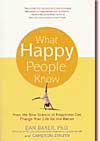
Healthy self-esteem means thinking as highly of yourself as you think of your friends and peers. We are so used to negative feedback that we are more aware of our weaknesses than our strengths. We are often taught we will “fail”, so it is often hard to enjoy success, no matter how small each “success” might be.
What is Self-Esteem?
According to Nathaniel Branden, Ph.D., noted author and expert on the subject, “Self-esteem is the experience of being competent to cope with the basic challenges of life and of being worthy of happiness.”
Why is High Self-Esteem Necessary?
As Branden notes, “Positive self-esteem is the immune system of the spirit, helping an individual face life problems and bounce back from adversity.” So, high self-esteem is crucial during the turbulence of your teenage years.

How Can A Teen Build Self-Esteem?
The process is simple, but putting it to work is difficult. Self-esteem is built upon the experience of success. Think of it as a circular process. When people experience success, they grow in self-confidence. As self-confidence grows, they feel empowered to face new challenges. As they succeed in confronting each challenge, they develop the capacity to cope with whatever life throws their way. That feeling leads to further growth of self-confidence, self-reliance and self-esteem.
To Maintain Healthy Self-Esteem…
- Celebrate your strengths and achievements.
- Forgive yourself for your mistakes.
- Don’t dwell on your weaknesses, every human has them.
- Change the way you talk to yourself — stop putting yourself down!
- Be sure that you are not judging yourself against unreasonable standards.
- Beating yourself for your weaknesses is self defeating. Use that energy for positive thoughts about you.
 People With High Self-Esteem Are…
People With High Self-Esteem Are…
- Able to accept and learn from their own mistakes.
- Confident without being obnoxious or conceited.
- Not devastated by criticism.
- Not overly defensive when questioned.
- Not easily defeated by setbacks and obstacles.
- Unlikely to feel a need to put others down.
- Open and assertive in communicating their needs.
- Not overly worried about failing or looking foolish.
- Not harshly or destructively critical of themselves .
- Not aggressively driven to prove themselves.
- Able to laugh at themselves, not taking themselves too seriously.
Why Do You Think You Have So Few Strengths Worth Celebrating?
- Because everyone has always pointed out your shortcomings?
- Because you rarely get any positive feedback for a job well done?
- Because the things you do well are so familiar to you that you take them for granted?
- Because you have learned to focus only on your mistakes?

When You Make A Mistake, Do You Say…
- What an idiot! How can you be so stupid!
- Can’t you get anything right! What a loser!
- There you go again! You’re not really up to it, are you?
- Who else has talked to you this way in the past?
 Why Are You Still Listening To Them?
Why Are You Still Listening To Them?
- You can’t change your past, but you can change the way you talk to yourself today.
- Start by making a LONG list of all the good things you have ever done.
- Catch yourself saying nasty things to yourself, then STOP.
- Recite your list of achievements to yourself.
- Convince yourself to be proud of what you have done and of what you are working on doing, on anything you have done for another person, on any improvement in your school work, or on how well you manage your time, your money, your friends, your schedule, etc.
Affirmations for Self-Esteem
- There are many things I do successfully. (Write them down if you have to.)
- I can improve my self-esteem by meeting my own expectations.
- I don’t have to strive for perfection to approve of myself.
- My worth as a human being does not depend on achieving a perfect weight, or by being the smartest, or the most popular, or the fastest, or having the highest grades, or being the funniest, or having the coolest friends, or getting into the best school, or… (you fill in the rest !)
- I alone am responsible for the decisions I make.
- I am a unique individual.
- Persistence will help me succeed.
- Every mistake I make can be an opportunity to learn. I can’t be afraid to make mistakes, this is how I learn to improve.
- I deserve support and will ask for help when I need it.
- I have the power to forgive myself for past mistakes.
- I will treat myself as someone special.
- I determine what success means to me.
- Now you make up some of your own!

This poem always lifts my self-esteem, see if it helps you.
What is Success?
Ralph Waldo Emerson (1803-1882)
- To laugh often and much;
- To win the respect of intelligent people and the affection of children;
- To earn the appreciation of honest critics
- And endure the betrayal of false friends;
- To appreciate beauty,
- To find the best in others,
- To leave the world a bit better; whether by a healthy child,
- A garden patch, or a redeemed social condition;
- To know that one life has breathed easier because you have lived.
- This is to have succeeded.
What Happy People Know
by Dan Baker
The six happiness tools in this guide include: practicing appreciation; making choices;building personal power; leading with your strengths; employing constructive language; and living multidimensionally.
![]() Quotes from writers and others, read them and feel good about you! Make up your own and send them in.
Quotes from writers and others, read them and feel good about you! Make up your own and send them in.
“Our greatest glory is not in never failing, but in rising up every time we fail.”
– Ralph Waldo Emerson –
“You yourself, as much as anybody in the entire universe, deserve your love & affection.”
– Buddha –
Our strength often increases in proportion to the obstacles imposed upon it.”
– Paul De Rapin –
“Courage is resistance to fear, mastery of fear, not absence of fear. Except a creature be part coward it is not a compliment to say it is brave.”
– Mark Twain –
“The stars are constantly shining, but often we do not see them until the dark hours.”
– Earl Riney –
“Success doesn’t come to you…you go to it.”
– Marva Collins –
“Criticism may not be agreeable, but it is necessary. It fulfills the same function as pain in the human body. It calls attention to an unhealthy state of things.”
– Winston Churchill –
“No one can make you feel inferior without your consent.”
– Eleanor Roosevelt –
“The people who get on in this world are the people who get up and look for the circumstances they want, and, if they can’t find them, make them.”
– George Bernard Shaw –
“Success comes not from the avoidance of failure. Most of the time, success is achieved only when there has been enough failure.”
– Unknown Author –
“Problems are only opportunities in work clothes.”
– Henry J. Kaiser –
“Destiny is not a matter of chance; it is a matter of choice. It is not something to be waited for; but, rather something to be achieved.”
– William Jennings Bryan –
“Every situation, properly perceived, becomes an opportunity.”
– Helen Schucman –
“Anyone who has never made a mistake has never tried anything new.”
– Albert Einstein – (from Amy)
“Not everything that counts can be counted, and not everything that can be counted counts.” (Sign hanging in Einstein’s office at Princeton U.)
– Amy
“The first and most important step toward success is the feeling that we can succeed.”
– Nelson Boswell – (from a CN reader, A)
“Far away there in the sunshine are my highest aspirations. I may not reach them, but I can look up and see their beauty, believe in them, and try to follow where they lead.”
-Louisa May Alcott – (from a CN reader, Mandy)
“I’ve finally stopped running away from myself, who else is there better to be?”
-Goldie Hawn
(from a CN reader)
- Do you have one you like? Send it to Teen Health Secrets and we’ll post it.


